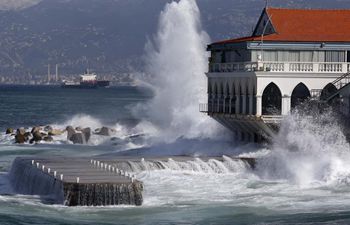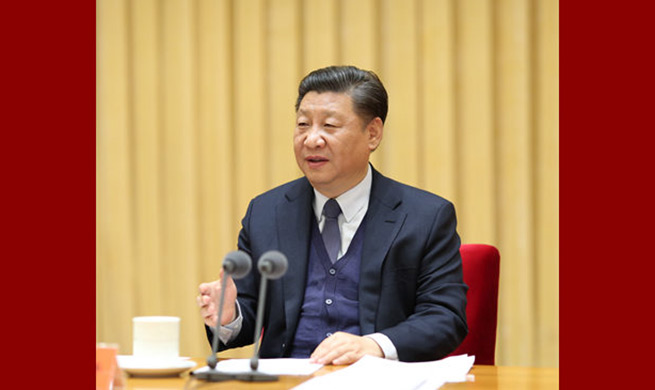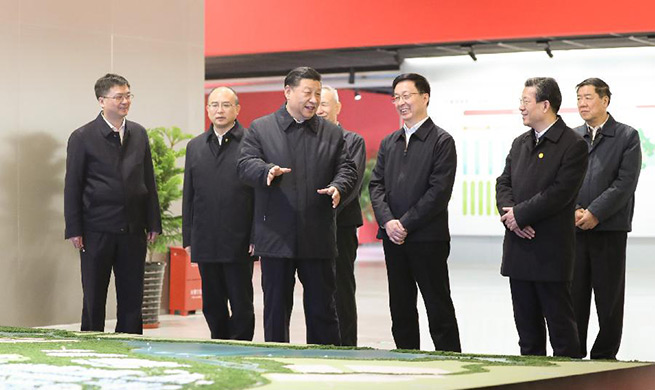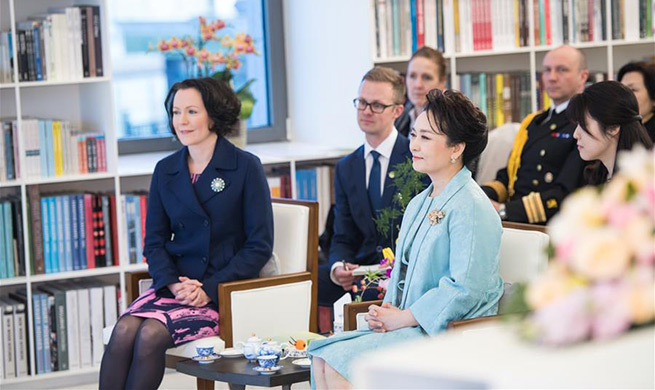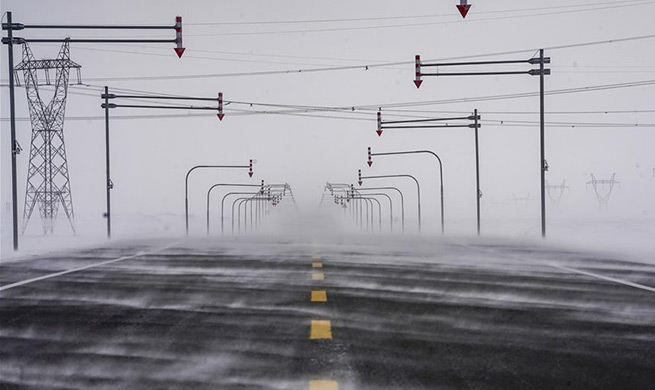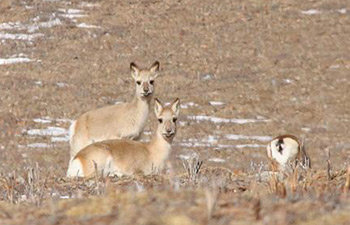ANKARA, Jan. 16 (Xinhua) -- Turkish President Recep Tayyip Erdogan on Tuesday welcomed a proposal by the United States to establish a 32-km deep safe zone inside northeastern Syria and suggested that the zone will be set up by the Turkish military.
"Mr. Trump once again confirmed his decision to pullout from Syria. He also spoke on a security zone for more than 30 kilometers deep inside (Syria), which would be set up by us," Erdogan said when addressing his lawmakers on Tuesday.
This zone might be extended, he said, noting that the Turkish and the U.S. officials will discuss technical aspects of the proposed secure zone along the Syrian border.
Erdogan was referring to a phone conversation on Monday during which he and Trump "have reached an understanding of historical importance."
"The president expressed the desire to work together to address Turkey's security concerns in northeastern Syria while stressing the importance to the United States that Turkey does not mistreat the Kurds and other Syrian Democratic Forces," the White House said in a statement late Monday.
Ankara and Washington have been at odds over the latter's imposition on the Turkey for giving assurances that it will not attack the People's Protection Units (YPG) after the withdrawal of the U.S. troops.
The latest phone call came after Trump's tweeted threat on Sunday to "devastate Turkey economically if they hit Kurds," referring to the YPG, which Ankara considers as the Syrian offshoot of the outlawed Kurdistan Workers' Party (PKK).
The U.S. and Turkey have been quarreling in the past few years regarding the Kurdish militia in northern Syria, a U.S. ally in the anti-Islamic State fight.
The U.S. president's latest harsh tweet was a shock for its NATO ally, but the Turkish leadership seems trying to keep bilateral ties calm and urges Trump for talking through established dialogue channels rather than messages through social media.
Erdogan reacted against Trump's tweet saying, "This tweet has saddened us. Why? Because we are strategic partners. We may have different positions on some issues but we should be locked on same objectives."
Turkish Foreign Minister Mevlut Cavusoglu claimed that "economic threats against Turkey will get nowhere."
However, the Turkish economy is vulnerable to any foreign policy turbulence particularly with regards to ties with the U.S., and its currency lost against U.S. dollar at their each political spat since the beginning of the year. The Turkish lira fell 1.6 percent to 5.545 against the U.S. dollar on Monday after the dispute.
Despite all ups and downs in mutual ties, Turkey and the U.S. keep on technical talks on cooperation and coordination for withdrawal of the U.S.'s 2,000 troops on the ground in northeastern Syria and for Ankara's anti-IS mission there.
The U.S. does not want any clashes between Syrian Kurdish militia and Turkish forces and seeks a formula which will also address its NATO ally's security concerns on its border, said Bahadir Kaynak, an international relations associate professor from Altinbas University, elaborating on the suggestion by Trump for creation of a safe zone in Syria.
But Washington is still working on this plan which may require Turkey's patrolling in the zone, Kaynak added.
The idea of a safe zone in northern Syria was long promoted by Turkey for several years after clashes erupted in Syria, mainly to defeat a possible threat by Syrian Kurdish fighters to Turkish border. But the proposal was killed by the Obama administration.
"We had suggested securing the ground if the U.S. would provide aerial protection. Obama did not take necessary steps on it although he was in favor of it," Erdogan said.
"The fact that Trump is a leader capable in negotiating under any circumstances has pushed the Turkish officials to adopt a soft stance, because, while Trump was threatening Turkey, he was at the same time suggesting a solution to the question by revisiting the buffer zone formula," said Serkan Demirtas, political analyst and Ankara bureau chief of the Hurriyet Daily News.
The modalities of the safe zone need to be clarified and what does the U.S. suggest under this plan will be detailed in the upcoming days, a Turkish official told Xinhua on condition of anonymity.
The official said that Turkish and the U.S. officials will meet in Washington on Feb. 5 for a working group meeting on Syria.


